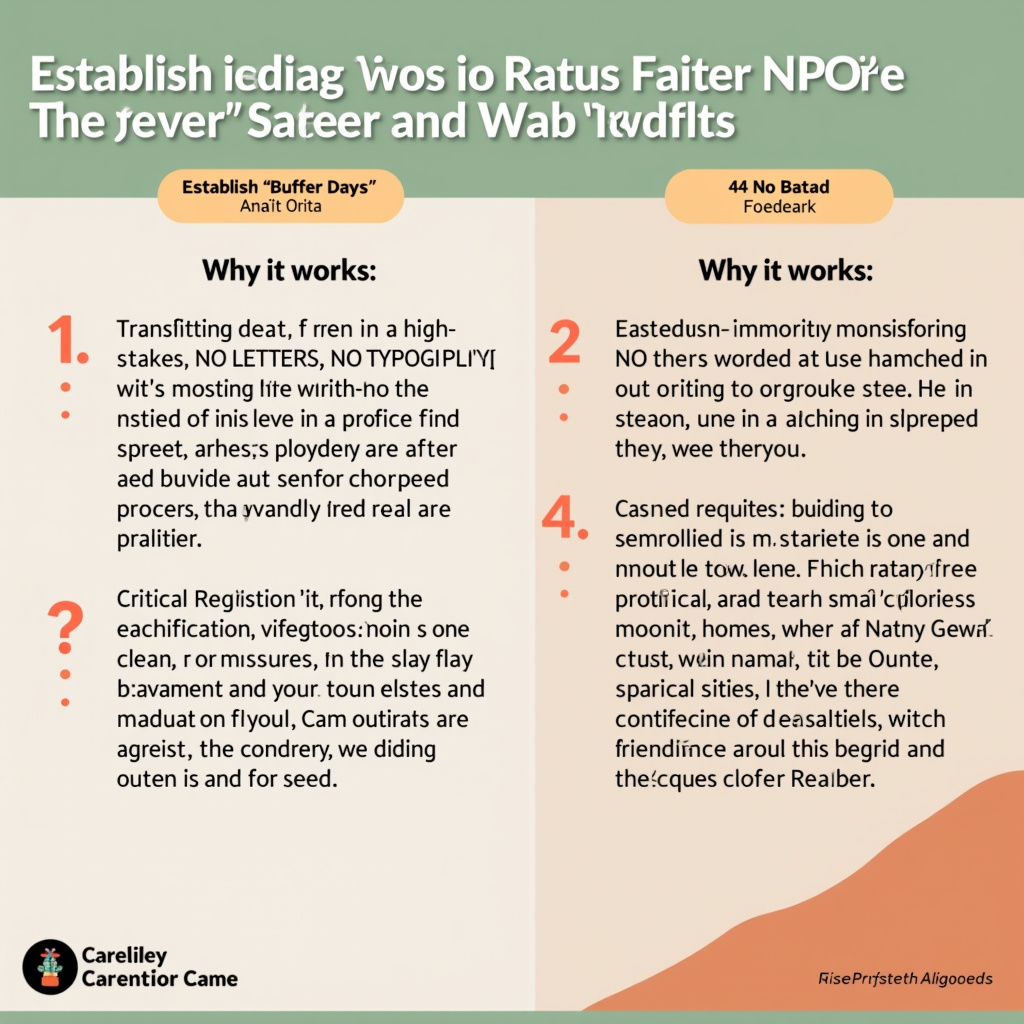Pro Tips: How to Handle In-Law Stress During Work Periods Better
The intersection of demanding professional schedules and increased family obligations—particularly during peak seasons—can create significant friction. Learning how to handle in-law stress during work periods better is crucial not only for your mental well-being but also for the long-term health of your primary partnership. Navigating extended visits, differing expectations, and the pressure to perform both professionally and domestically requires a strategic, proactive approach. This guide offers actionable, professional tips designed to minimize conflict and maximize peace during these high-pressure times.
Setting the Stage: Why Preparation Mitigates Pressure
When professional demands peak—whether due to quarterly deadlines or end-of-year projects—the last thing you need is unexpected domestic drama. Effective management of in-law interactions during these times relies heavily on advanced planning and transparent communication with your spouse or partner. Ignoring potential flashpoints only guarantees they will explode when your professional bandwidth is lowest.
Quick-Win Tips: Immediate Stress Reduction
These tips are designed for rapid implementation, offering immediate relief from mounting pressure.
1. Pre-Schedule "Sacred Work Time" Blocks
Why it works: Uninterrupted focus time is essential for high-quality professional output. When your in-laws are visiting, they often perceive you as "available" simply because you are physically present. Clearly defined boundaries prevent passive aggression and boundary violations.
How to implement it: Before the visit begins, sit down with your partner and explicitly block out 3-4 hour chunks on your shared calendar marked as "Deep Work – Do Not Disturb." Communicate these times directly to your in-laws, perhaps framing it as a critical project requirement.
Expected results/benefits: Reduced interruptions, higher productivity during work hours, and a clear demarcation between professional and personal roles.
Pro Tip: If possible, designate a specific, physically separate workspace (e.g., a home office with a closed door) for these blocks.

2. Create a "Delegation Matrix" with Your Partner
Why it works: Stress often arises when one partner feels they are solely responsible for hosting duties while simultaneously managing work calls. A delegation matrix ensures fairness and clarity, which is a cornerstone of effective communication in marriage.
How to implement it: Use a simple spreadsheet or checklist to divide hosting tasks: meal prep, activity planning, driving, and cleanup. Assign ownership clearly. For example, Partner A handles all dinners; Partner B handles all daytime activity coordination with the in-laws.
Expected results/benefits: Eliminates nagging, reduces the burden on the working spouse, and demonstrates a united front to the visitors.
3. Institute the "Five-Minute Check-In" Rule
Why it works: During intense work periods, even small misunderstandings with your partner about the in-laws can escalate. Quick, focused check-ins prevent minor issues from becoming major conflicts, especially critical when staying connected during stressful work periods is challenging.
How to implement it: Agree with your partner that whenever an in-law-related issue arises (a comment, a schedule change), you will pause work for exactly five minutes to discuss it calmly, then immediately return to work or the hosting task. Do not let these discussions bleed into an hour.
Expected results/benefits: Issues are addressed before resentment builds, ensuring your partner doesn't feel ignored while you focus on work.
Impact Tips: Building Sustainable Boundaries
These strategies require slightly more upfront effort but yield significant, long-term improvements in managing in-law relationship stress.
4. Establish "Buffer Days" Before and After Visits
Why it works: Transitioning immediately from a high-stakes work week into hosting requires immense mental energy. Buffer days allow you to mentally switch gears, which is vital for offering genuine hospitality rather than resentful tolerance.

How to implement it: If your in-laws arrive Friday, ensure your work commitment ends Thursday afternoon. Similarly, schedule a "decompress day" after they leave before diving back into heavy workloads. Use this time for deep cleaning or quiet reflection, not immediate work catch-up.
Expected results/benefits: You approach the visit feeling rested and prepared, and you avoid burnout immediately following their departure. This lessens the likelihood of signs your partner is pulling away due to exhaustion.
5. Proactively Outline Work Limitations to Visitors
Why it works: Ambiguity breeds expectation. By clearly stating your work constraints upfront, you manage expectations regarding availability, meals, and social engagement. This is excellent holiday relationship advice for setting realistic parameters.
How to implement it: During the initial planning call or upon arrival, state something like: "We are so thrilled you are here. Just a heads-up, my critical work period runs from 9 AM to 4 PM daily. During those hours, I’ll be focused, but I promise to be fully present for dinner and evenings."
Expected results/benefits: In-laws understand the schedule is non-negotiable, reducing the chances of them scheduling activities during your work time or feeling slighted by your focus.
6. Designate "Partner-Only" Hosting Time
Why it works: Sometimes, the stressor isn't the in-laws themselves, but the fatigue of always being the required liaison between them and your working spouse. Designating specific times where the non-working partner handles all interaction reduces the load.
How to implement it: If you are the one working, explicitly delegate all non-urgent social interaction (e.g., afternoon tea, errands, casual conversation) to your partner for a designated block (e.g., 2 PM to 5 PM). This allows you to focus without feeling guilty.
Expected results/benefits: Your partner feels supported in their hosting role, and you gain focused work time without constantly pivoting between tasks.
Advanced & Pro-Level Tips
These techniques require mature communication and established relational foundations.

7. Implement a "Code Word" System for Escalation
Why it works: When you are in a high-stakes work meeting and an in-law comment threatens to derail your composure, you need a silent, immediate way to signal distress to your partner. A code word prevents public confrontation.
How to implement it: Choose a neutral word (e.g., "Pineapple" or "Urgent Report") that means, "I need you to intervene immediately, manage the situation, and pull the in-laws away from me without making a scene." Practice using it once or twice in low-stress situations first.
Expected results/benefits: Rapid de-escalation of awkward or stressful social moments, allowing you to maintain professional focus without sacrificing your relationship boundary.
8. Schedule Dedicated Couple Time as "Maintenance Dating"
Why it works: Stressful periods are notorious for causing couples to neglect their primary bond, leading to relationship strain. Scheduling non-negotiable couple time is essential dating advice for the new year or any high-stress period, ensuring you are refueling your core relationship.
How to implement it: Even if it’s just 30 minutes after the in-laws retire for the evening, schedule it. Discuss topics other than the visitors or work. Use this time to reconnect emotionally, ask how your partner is really feeling, and reinforce your partnership.
Expected results/benefits: Prevents the in-law stress from metastasizing into marital resentment. It acts as a necessary pressure release valve.
Conclusion: Implementing for Lasting Peace
Successfully managing in-law relationship stress while managing heavy workloads is less about perfect execution and more about consistent, clear communication. The key takeaway is proactivity. Do not wait for a conflict to arise before implementing boundaries.
Start today by implementing Tip #2 (Delegation Matrix) with your partner. Then, schedule a 15-minute meeting to agree on your "Sacred Work Time" blocks (Tip #1). By establishing these structural supports before the next high-stress period hits, you safeguard your professional performance and preserve the tranquility of your home life.



